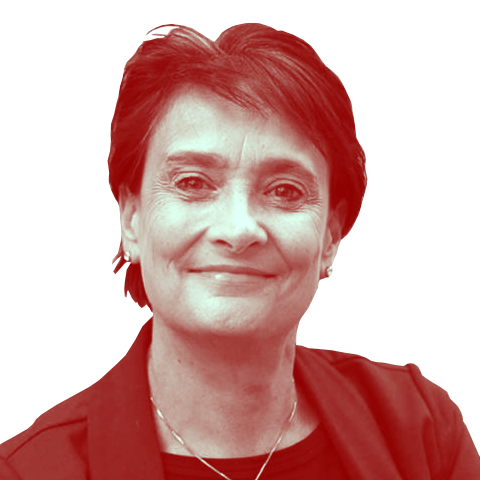Albania strives for cultural identity, with Swiss support

As Albania slowly reclaims its cultural heritage after half-a-century of Communism, Switzerland is helping in the process.
Over the past three years Pro Helvetia, the Swiss arts council, has encouraged Albanian cultural activities. Regarded as one of Europe’s poorest countries, Albania saw virtually no cultural development during its Communist isolation.
Since the Communist era ended a decade ago, economic difficulties have put artistic ventures low on the government’s list of priorities.
“When I see all the poverty here, I do sometimes think that culture is a luxury,” Christian Zindel, director of Pro Helvetia in Albania, told swissinfo.
“But without culture you have no identity. History and culture provide something very important for every individual – they allow them to be somebody.”
Zindel is a one man show in Albania, touring the country looking for promising young artists and performers. Apart from Zindel, the Pro Helvetia office in the capital Tirana is staffed entirely by local people.
Guns into art
One of Pro Helvetia’s most successful cultural projects is the Lindart gallery in the Albanian capital Tirana. With Swiss financial support, the gallery is run by a group of Albanian women artists, and has mounted a series of successful exhibitions.
“We are really very proud of this,” confesses Zindel. “It’s regarded as number two in the city after the national gallery, and it’s really working very well.”
Reflecting on some of the problems Albania has, the latest idea from the gallery involves promoting peace and art at the same time. In 1997, following the collapse of the pyramid investment scheme, millions of guns were looted by angry crowds from the country’s arsenals. Now the gallery wants to collect some of the guns, and have local artists and sculptors turn them into works of art.
Zindel stresses that allowing local ideas like this to come to fruition is important for Pro Helvetia.
“We are not here to impose our culture on the people,” he said. “Albanian culture is good as it is. What we do is support quality work.”
Dancing to a new tune
Another Pro Helvetia project has brought the Swiss contemporary dance duo Carambole to Tirana to help train students at the city’s Academy of Arts. Christiane Loch and Silvano Mozzini are preparing the young dancers for a performance later this year.
“They have no tradition of contemporary dance,” explained Loch. “So that is new for them. But they have a big folk dance tradition and that has really impressed me. It’s not boring like Switzerland, it’s really rhythmic and quick and modern, not old fashioned at all. I’ve learned a lot from this.”
Dreaming of escape
Many of the young dancers however hope that their training by Carambole could be the first step on the road to a professional career in the west.
“Life is very hard here,” explains one young woman, “and I would like to leave.”
“But only for a while,” she adds quickly. “Of course I’ll always come back to Albania.”
Emma Andrea, one of Albania’s best known actresses, is coaching the students in drama. She understands well the frustrations that make them want to leave their country.
“If you want the truth,” admitted Andrea, “until last year I was thinking of leaving. Every day I woke up with the thought; today is the day I will go.”
But now, Andrea believes, she can see reason for optimism on the Albanian cultural scene.
“There are people, actors, directors, musicians, who are doing something,” she said. “OK with small budgets, but still, it’s something.”
“I’m proud now of staying here,” she went on. “Of resisting here, if you can call it that. It’s very difficult to survive in Albania, but if I can stay here, and do something (in the art world), it’s a challenge for me and I’m happy.”
Putting Albanians in charge
Pro Helvetia’s Christian Zindel will be leaving Albania though. After June of next year, a local person will do his job, although financial support will still be provided by Switzerland.
The idea is that Albanians should now take responsibility for promoting their culture themselves. But Albania remains a country in transition, its social and political infrastructure cannot really be described as stable, or even, in some cases, honest, and Zindel has some doubts about pulling out so soon.
“The situation is a bit delicate,” Zindel said. “With corruption everywhere, so perhaps it’s a bit early. For myself I would have waited another year or two.”
Still, Zindel can take comfort in the fact, that during his time in Albania, there has been some real progress on the cultural scene.
“Many things have changed,” he reflected. “In the beginning there was no cinema in Tirana. Now there are three. There was perhaps one concert a week, and now you have a choice.”
“There is a new confidence among the artists that they have something to say. Many things have changed, and it’s good that we had the chance to help in this transition process. So although I’m a bit sad to leave, I do think we achieved something.”

In compliance with the JTI standards
More: SWI swissinfo.ch certified by the Journalism Trust Initiative

You can find an overview of ongoing debates with our journalists here. Please join us!
If you want to start a conversation about a topic raised in this article or want to report factual errors, email us at english@swissinfo.ch.